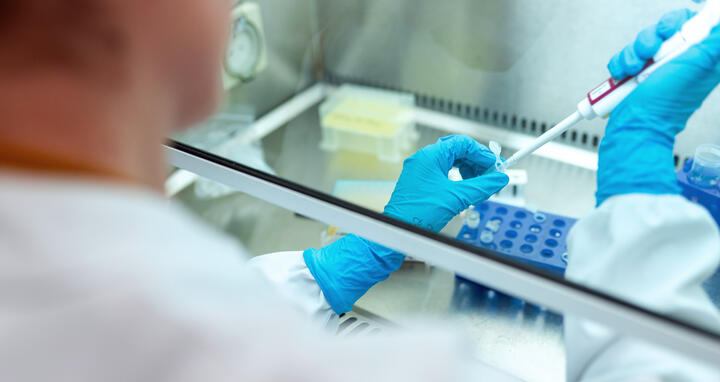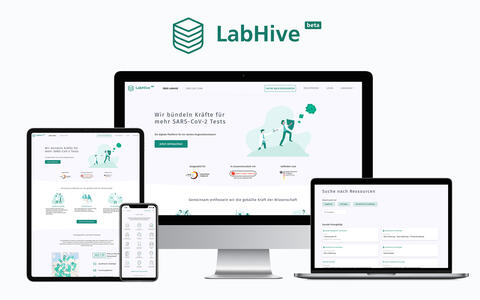Support for SARS-CoV-2 diagnostics
An interdisciplinary team of 15 scientists, physicians, web developers, and security experts will use the digital platform LabHive to bundle testing capacities for SARS-CoV-2 and to compensate for bottlenecks in diagnostic centers. On LabHive qualified volunteers can provide their manpower, and research laboratories can offer reagents and equipment. Diagnostic centres have access to these services and can call on support if needed.
LabHive provides resources such as personnel, reagents or equipment that might otherwise remain unused.
"In many university or non-university research labs, the corona crisis has restricted scientific operations," says Dr. Tobias Opialla from the Berlin Institute for Medical Systems Biology (BIMSB), an institution of the Max Delbrück Center for Molecular Medicine in the Helmholtz Association (MDC). "LabHive provides resources such as personnel, reagents or equipment that might otherwise remain unused." Like all participants, Opialla works voluntarily on the development and implementation of the platform.
The idea for this project was born during the #WirVsVirus-Hackathon of the German government and the project is currently funded by the German Federal Ministry of Education and Research. Their partner is the Björn Steiger Foundation.
An interdisciplinary team coordinates test capacities for SARS-CoV-2 using the LabHive digital platform.
Further Information
Press contacts
Dr. Tobias Opialla
Max Delbrück Center for Molecular Medicine in the Helmholtz Association (MDC)
Berlin Institute for Medical Systems Biology (BIMSB)
Scientist at the Proteomics and Metabolomics Platform
+49 30 9406 1330
Tobias.Opialla@mdc-berlin.de
Christina Anders
Max Delbrück Center for Molecular Medicine in the Helmholtz Association (MDC)
Editor, Communication Department
+49-30 9406 2118
christina.anders@mdc-berlin.de or presse@mdc-berlin.de
- The Max Delbrück Center for Molecular Medicine (MDC)
-
The Max Delbrück Center for Molecular Medicine in the Helmholtz Association (MDC) is one of the world’s leading biomedical research institutions. Max Delbrück, a Berlin native, was a Nobel laureate and one of the founders of molecular biology. At the MDC’s locations in Berlin-Buch and Mitte, researchers from some 60 countries analyze the human system – investigating the biological foundations of life from its most elementary building blocks to systems-wide mechanisms. By understanding what regulates or disrupts the dynamic equilibrium in a cell, an organ, or the entire body, we can prevent diseases, diagnose them earlier, and stop their progression with tailored therapies. Patients should benefit as soon as possible from basic research discoveries. The MDC therefore supports spin-off creation and participates in collaborative networks. It works in close partnership with Charité – Universitätsmedizin Berlin in the jointly run Experimental and Clinical Research Center (ECRC), the Berlin Institute of Health (BIH) at Charité, and the German Center for Cardiovascular Research (DZHK). Founded in 1992, the MDC today employs 1,600 people and is funded 90 percent by the German federal government and 10 percent by the State of Berlin.






